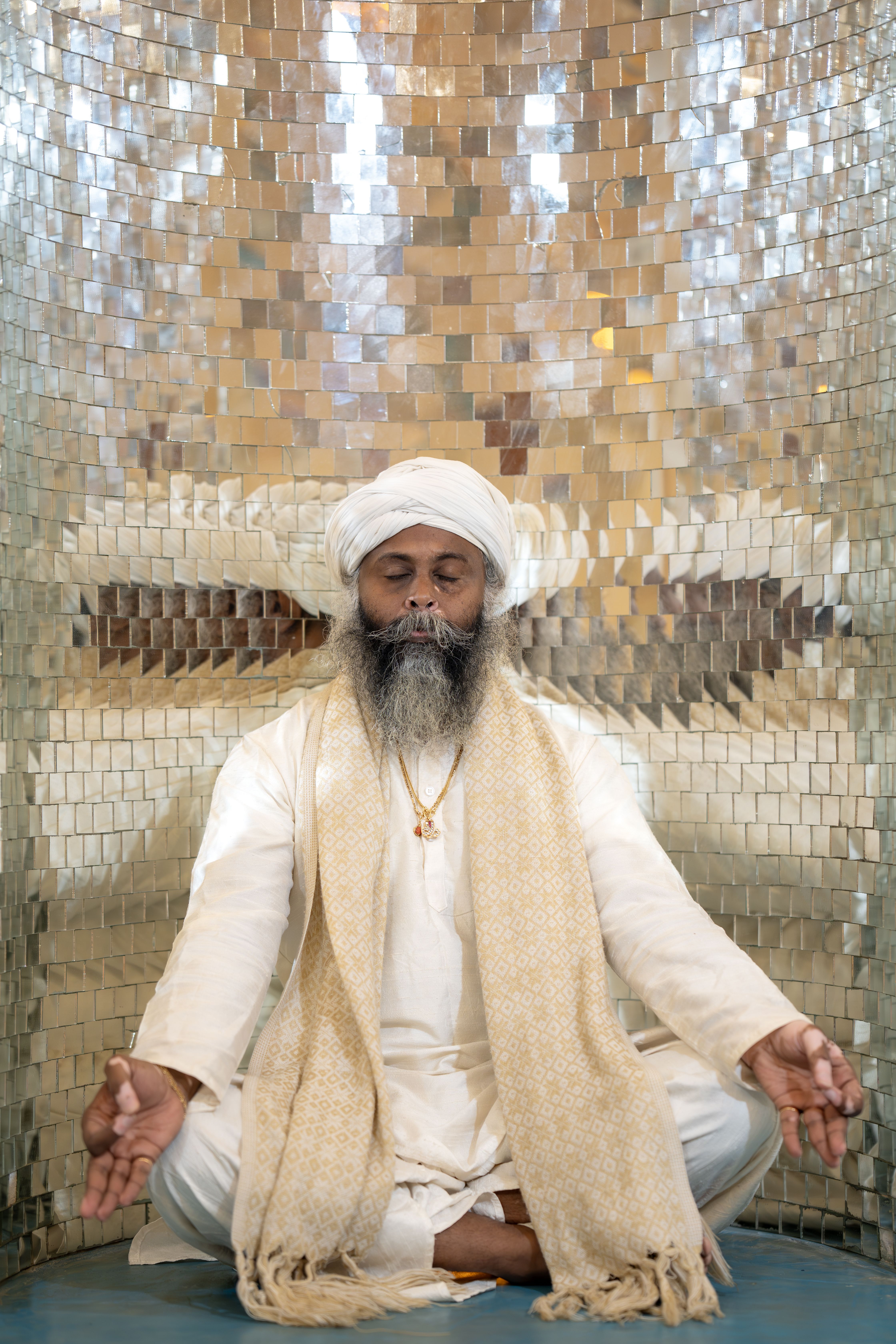Jackfruit, cherished for its taste and versatility, holds a significant place in Ayurveda due to its health benefits. Known for balancing bodily doshas and promoting vitality, this tropical fruit is celebrated as a sattvic food, meaning it enhances calmness and balance. With a nutrient-rich profile including fibers, antioxidants, and vitamins like C and A, jackfruit supports digestion, boosts immunity, and contributes to overall well-being.
The Ayurvedic perspective highlights jackfruit's capabilities in supporting digestion and gut health due to its high fiber content, making it ideal for regulating bowel movements. Its immune-boosting properties are attributed to vitamin C and antioxidants, which Ayurveda links to enhancing ojas, the body's vital essence. Additionally, jackfruit's low glycemic index in its unripe form aids in balancing blood sugar levels, particularly beneficial for those with diabetes or metabolic imbalances.
Jackfruit also provides benefits for skin health, heart health, and energy levels, thanks to its cooling nature and rich nutrient content. The fruit is praised for its ability to pacify excess Pitta dosha, improve collagen production, and its heart tonic qualities that regulate blood pressure. Whether consumed ripe or unripe, jackfruit is a versatile and healthy addition to the diet, capable of balancing Vata and Pitta doshas while providing spiritual and energetic benefits.
Read more...Dhanvantari, the revered Hindu deity of medicine and healing, embodies the essence of Ayurveda, the ancient Indian system of holistic health. Emerging from the cosmic event of *Samudra Manthana*, where gods and demons churned the ocean for the nectar of immortality, Dhanvantari brought forth the sacred *Amrita*, highlighting the divine link between health, life, and spirituality. This narrative underscores the holistic approach to healing that integrates physical well-being with spiritual balance, which is central to Ayurvedic wisdom.
As the father of Ayurveda, Dhanvantari passed down the knowledge of balancing mind, body, and spirit, foundational for vibrant health. Ayurveda emphasizes living harmoniously with nature, preventive care, and understanding individual constitution for personalized health practices. His teachings encourage lifestyle choices that foster long-term vitality, exemplified by mindful eating and natural remedies, reflecting the enduring relevance of these ancient principles in today’s fast-paced world.
Dhanvantari's symbolism, including the pot of *Amrita* and healing herbs, serves as a reminder of the natural sources of health and the importance of self-care. His teachings advocate that true wellness is achieved through aligning with nature and listening to our bodies, ensuring balance and harmony. In modern times, incorporating Ayurvedic practices inspired by Dhanvantari into daily life can provide a pathway to health, healing, and spiritual growth, allowing us to thrive amidst contemporary challenges.
Dhanvantari, revered in Hindu tradition as the god of medicine and healing, epitomizes the holistic wisdom of Ayurveda—a system that marries health with spiritual well-being. Emerging from the cosmic ocean during the Samudra Manthana with Amrita, the nectar of immortality, Dhanvantari symbolizes the divine gift of healing and longevity. His story illustrates that true healing extends beyond the physical, serving as a spiritual process that achieves balance and vitality.
As the father of Ayurveda, Dhanvantari handed down a legacy of wellness centered on balancing mind, body, and spirit. Ayurveda emphasizes prevention, harmony with nature, and understanding individual constitution for vibrant health. By incorporating Ayurvedic practices into daily life, such as mindful eating and self-care, we can rediscover our innate ability to maintain well-being and resilience in our modern world.
Dhanvantari's teachings remind us that health serves as the foundation for all aspects of life, underscoring that healing is both an art and a devotion. His special day, Dhanvantari Jayanti, celebrated just before Diwali, invites people to seek his blessings for wellness and protection. By honoring our bodies and embracing nature’s wisdom, Dhanvantari’s divine presence guides us toward a harmonious and balanced life.
Read more...In today's rapidly evolving world, achieving balance and grounding can feel challenging. However, the ancient Ayurvedic practice of Dinacharya offers a structured daily routine to align our bodies and minds with nature's rhythms, promoting overall well-being. By integrating Dinacharya into our lives, we can enhance health, harmony, and a sense of peace.
Dinacharya, derived from the Sanskrit words for day and behavior, emphasizes a routine in sync with natural cycles like sunrise and mealtimes. This practice supports the balance of the body's doshas—Vata, Pitta, and Kapha—leading to better physical, mental, and emotional health. When the doshas are in harmony, we experience improved immune function, digestion, and stress reduction.
Incorporating Dinacharya can start with simple adjustments like waking up early, maintaining oral hygiene, and practicing self-care through activities such as yoga and meditation. The routine fosters a predictable and stable environment, reduces anxiety, and improves sleep quality. By living in tune with these Ayurvedic principles, we nurture our health and cultivate a harmonious life.
Read more...The blog post emphasizes the vital role of mindful eating and the environment in which we consume food, highlighting that both what and how we eat significantly impact our well-being. When we choose nutritious foods like fruits, vegetables, whole grains, lean proteins, and healthy fats, we provide our bodies with essential nutrients that fuel energy, enhance mood, and support overall physical and emotional health. This conscious decision to prioritize our health is an act of self-love and commitment to vitality.
Moreover, the setting in which we eat can profoundly affect our body's response to food. Enjoying meals in calm, aesthetically pleasing environments encourages relaxation, improves digestion, and enhances nutrient absorption. Creating serene dining experiences, such as eating in tranquil locations or setting up a beautiful dining area at home, helps us make healthier food choices and foster a sense of well-being, signaling to our bodies that we are in a nurturing space.
The blog post encourages incorporating rituals into mealtimes by creating a pleasant dining atmosphere with elements like beautiful tableware and soft music. This approach not only makes meals more enjoyable but also fosters mindfulness and appreciation for the food and its preparation. Ultimately, embracing mindful eating in beautiful settings reinforces a message of care and respect towards ourselves, leading to improved physical health, emotional balance, and inner peace.
Read more...In ancient Indian alchemy and traditional practices, there is a concept known as **"Navapashanam"** (meaning "nine poisons" or "nine deadly metals"), which refers to a unique combination of nine different metals or elements believed to have healing properties when mixed in specific proportions. Statues or idols made from these metals are sometimes said to hold the power to cure diseases and bring spiritual benefits.
The nine metals typically include:
1. **Gold**
2. **Silver**
3. **Copper**
4. **Iron**
5. **Tin**
6. **Zinc**
7. **Mercury**
8. **Lead**
9. **Bell metal (a bronze alloy)**
The idea behind Navapashanam is that these metals, when combined in precise proportions by highly skilled artisans and alchemists, undergo a transformation, balancing their potentially harmful properties and unlocking their medicinal and spiritual benefits. Such statues or idols are often used in traditional Hindu rituals, believed to bring blessings, good health, and longevity.
Historically, these metals have been associated with certain cosmic energies, and they symbolize different planetary influences in **Jyotisha** (Vedic astrology). The use of Navapashanam is not widely known or practiced in modern times, but there are still devotees and traditional healers who believe in its powers.
**Healing Properties:**
It is believed that water poured over a Navapashanam statue absorbs the curative energies of the metals. Drinking this water or using it for bathing is thought to provide relief from ailments, improve vitality, balance the body’s energies, and even cure chronic diseases. Some also claim that the statue radiates healing energy, which can benefit anyone near it.
**Spiritual Benefits:**
In addition to its health-related benefits, Navapashanam is also seen as a spiritual tool. The mixture of metals is believed to balance planetary energies, ward off negative forces, and enhance one’s overall spiritual well-being.
### The Legend of Siddhars
Navapashanam is often linked to the Siddhars, ancient Tamil mystics and yogis who were said to possess profound knowledge of alchemy, medicine, and spirituality. According to legend, they used their knowledge of metals and minerals to create Navapashanam statues and medicinal preparations that could cure any disease and even grant immortality.
While modern science has not validated these claims, the lore around Navapashanam persists in certain spiritual circles, especially in South India.
### Conclusion
Though the idea of a statue made of "9 deadly metals" curing all diseases may sound extraordinary, it is a part of ancient Indian alchemical traditions that focus on the transformative power of metals. Whether viewed as a mystical practice or simply a fascinating cultural tradition, the Navapashanam concept speaks to the timeless human quest for healing and the merging of spiritual and physical well-being.

